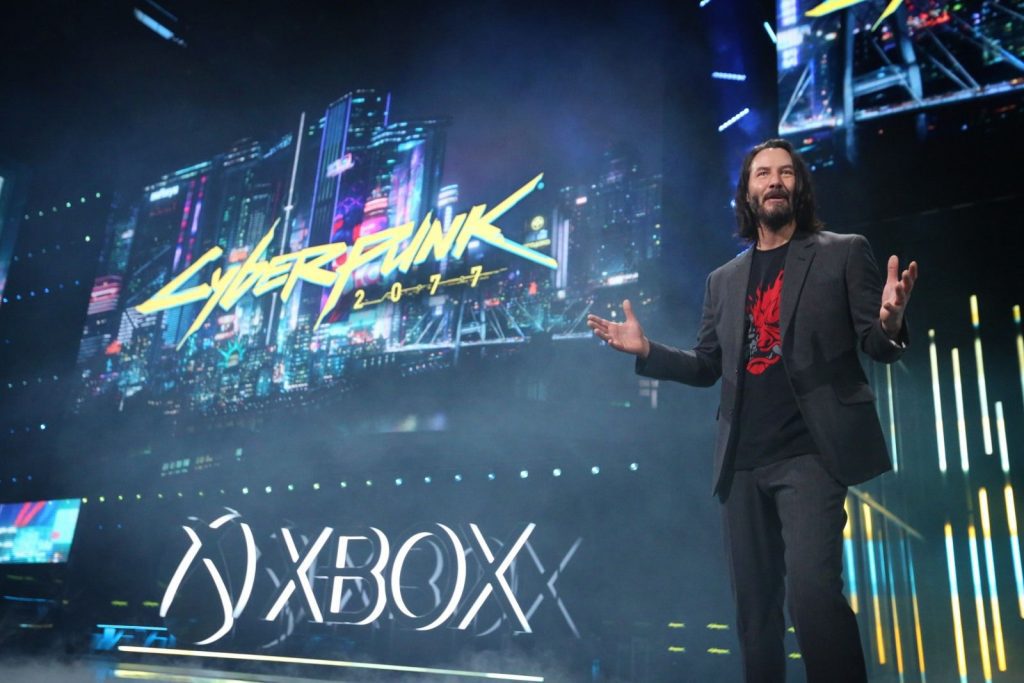The games industry is in a state of flux. While E3 2019 doesn’t formally begin until Tuesday, big publishers like Microsoft get their big announcements out of the way with their pre-E3 press conferences, flashy Hollywood-style theater events that combine stunning technical prowess and expertise with corny pyrotechnics and sometimes cringe-worthy corporate tilts at pop culture.
But there was something a bit strange about these first set of E3 presentations, an underlying sense of self-doubt behind the glitz and glamor. There’s a sense that the games industry can’t make up its mind.
It’s caught between competing, and in some ways contradictory, forces that threaten to pull it apart at the seams. Nothing embodies those contradictions more than Microsoft’s E3 2019 press conference.
First things first: it was, by any standards, a very cool show. There were almost more exciting and compelling games than we could count. Elden Ring, the twisted lovechild of Game of Thrones creator George R. R. Martin and the father Dark Souls, Sekiro, and Bloodborne, Hidetaka Miyazaki, had enough star power to fill the Microsoft Theater in its own right.
Cyberpunk 2077 had another great showcase, ballasted by Keanu Reeves sly and self-deprecating reveal. But perhaps the most significant part of the showcase came when Xbox head Phil Spencer showcased the two technologies that they want to shape their vision of the future of games: the home console codenamed Scarlett, and their XCloud streaming service.
While these technologies are presented as partners, they represent two opposing visions: one demands powerful, native hardware powered by physical media and run by the end user. The other demands portability, flexibility, and a shift away from native hardware in favor of the ease of use provided by instantly streaming from one device to the next.
Xbox is keen to insist that this isn’t the case: Scarlett and XCloud are technologies that complement each other, not compete with each other. After all, the user who prefers to stream can do so without damaging in any way a hardware user.
But historically, it hasn’t worked out that way. Look at film or television: it was often said that streaming services like Netflix would exist alongside physical media, not replace it. People would always want their DVDs, right? But it has replaced it, partly because the gain in convenience from streaming outweighs the loss of quality.
The games industry is not in a state of crisis, but it is in a state of anxiety. Film, television and music have as mediums been so radically changed by the advent of streaming that the industries revolving around them have failed to cope. It may well be that the game industry manages to square the circle of the much-dreaded “all-streaming future.” But these tensions become more apparent in moments when the industry is in a state of transition: from one hardware generation to another, from one method of delivery (physical media) to another (digital), and so on.
It’s worth mentioning the other big conferences of the day. Bethesda’s frankly bizarre presentation exposed weaknesses within that publisher’s strategy. And beyond that, it contained significant tactical errors.
Opening the conference with Fallout 76 and The Elder Scrolls: Blades, two widely derided and controversial titles, instantly struck a bum note. While Bethesda tried to show they were listening by acknowledging the controversy, their response didn’t amount to much other than “we know the game had a rough launch but trust us, it’s all good now!”
While there were many cheers (some of them perhaps sarcastic) and applause filled the room at points, there were also many confused faces, and even some bemused laughter and mild ribbing from conference goers who expected Bethesda to sweep their failures under the rug and highlight their potential future successes.
Why couldn’t the show have opened with Shinji Mikami’s fascinating Ghostwire Tokyo or id’s promising Doom Eternal? And why doesn’t Bethesda seem to understand that Mikami is their leading light and greatest talent? The conference had moments (like with Ghostwire Tokyo) where it suddenly became exciting and worthwhile, but they were dragged down by strangely lengthy appeals to a mediocre mobile game and a failed multiplayer experiment.
Luckily, Devolver Digital exists to make us realize how loopy and absurd the games industry often is by offering a funhouse mirror that distorts the worst elements of games culture into a sick stew of corporate muck. Beyond poking at the new “direct” style of a conference that has become so popular, the games store which bootlegged its own games was a delightfully funny play on the Moebius strip of corporate copycats. There’s really not much to say about their conference: it was funny and fun to watch, the games looked uniformly promising, and they know how to throw a fun party.
